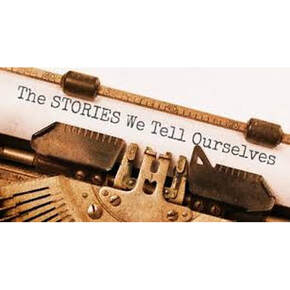|
Body-Mind-Spirit - Inspiration for Writers, Dreamers, and Seekers of Health & Happiness
 I grew up believing if I wasn’t outstanding I didn’t deserve to exist. I don’t know where this thought came from. I’m sure it must have protected or served me at one time. But eventually it made me feel like a performing monkey, jumping through hoops, trying to prove myself. Achievements are not a measuring stick of self-worth. Neither our successes nor our failures define us. We are greater than both. And each one, if we’re paying attention, can be an excellent teacher.
Aspects of this lesson have been at play in my writing and in my life. In the early years, I took rejection personally. I burned with shame when I’d find my manuscript, accompanied by a rejection letter, deposited by the postman on my front door step. Those were the days when writers did everything by snail mail. I hope none of my neighbors saw this, I’d think, scooping up the parcel and hurrying into my house. I wouldn’t want them to know I’m a failure. I made meaning out of those packages based on my thinking, and created a story in my mind—a narrative that I innocently and unconsciously made up and believed. But it was fiction. An illusion. Still, it looked real. I believed it lock, stock, and barrel. This created suffering. If I could talk to my twenty-something writer-self, I’d applaud her tenacity. I’d tell her rejection is par for the course; it’s how the game is played. I’d remind her that writing is a competitive business and it’s hard to get a book—or even an essay or poem—published. I’d remind her of the importance of the three P’s: passion, patience, and persistence. I’d also ask her to take a giant step back and to think of her life as a heroine’s journey. I’d tell her that her writing is part of that journey, but contrary to how she sometimes feels, her writing is not who she is. She is much larger. I’d remind her that the second she starts sizing herself up based on outside feedback, which is random, subjective, and absolutely not personal, she’s taking a wrong turn, swerving away from her mental health and well-being—all because of a thought. Or thoughts. I’d remind her that while she may not be aware of her thoughts, they steer the engine that is her life and create her experiences. This is true for us all. Life provides continuous opportunities to learn and grow, and even when you think you’ve learned a particular lesson, it can circle back around at a deeper level. In the thirty years I’ve been writing, and in the decade I’ve been helping others write, I’ve seen that challenges abound at every stage. A writer’s inner work never stops. I’m publishing a memoir next spring with She Writes Press, and my intention as I move it out into the world is to have fun, to share, and to enjoy the satisfaction of completion. In order for me to do this, I’ll have to be mindful of my thinking. One way to stay present is to use my feelings as a barometer. Our feelings come from our thoughts. We live in the feeling of our thinking. So if I’m feeling lousy, the best thing I can do is recognize, while in a low state of mind, that my thoughts—and the stories they embroider—are not true and cannot be trusted. I must hunker down, soothe myself in healthy ways, ride out the wave of that thought, and make sure I don’t buy into it. I can’t control having self-defeating thoughts, but I can choose to let them go without making them mean anything. Whether you’re starting your first manuscript or publishing your tenth book, the writing life provides opportunities for growth. It never stops. It’s a continual learning curve. While you cannot control outcomes in the world, how you approach your experiences, the meaning you ascribe them, will play a vital role in your health and happiness. It helps to adopt a learning orientation toward life, which means that everything you go through—whether you see it as “good,” “bad,” or neutral, is happening for you, rather than to you, and it’s a valuable learning opportunity. We are always learning, even when doing something we’ve done before. The Greek philosopher Heraclitus of Ephesus once wrote, “No man ever steps in the same river twice, for it’s not the same river and he’s not the same man.” Each moment is a gift, the proverbial present. When we maintain a solid, conscious connection with what’s unfolding before us, our minds are less busy spinning self-destructive stories. They won’t stop altogether—minds like to keep busy; it’s their nature—but they can be trained to slow down. What stories do you tell yourself? What might be possible if you held your writing and everything else in your life with more levity and less seriousness? Please share.
0 Comments
Leave a Reply. |
Receive over 80 writing prompts from Where Do You Hang Your Hammock to ignite your creativity, gain clarity, and reach your personal and professional goals! You'll also receive my inspirational monthly blog/newsletter. |
“Where the spirit does not work with the hand there is no art.” —Leonardo da Vinci

